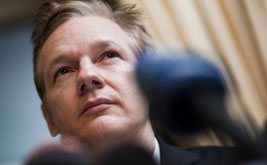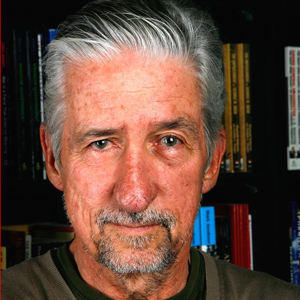
Climate Activists Hit Hard With ‘Do the Math’ National Tour Climate Activists Hit Hard With ‘Do the Math’ National Tour
350.org’s caravan heads to Washington, DC, to push President Obama to address climate change in his second term.
Nov 13, 2012 / Tom Hayden
Remember and Thank George McGovern Remember and Thank George McGovern
The Democrats and historians threw George McGovern under the bus. Now it is time for his resurrection, in a search for history’s lessons.
Oct 23, 2012 / Tom Hayden
Remembering Russell Means Remembering Russell Means
Russell was a reminder that the wars against indigenous people, and the conquest of their resources, are far from over, and that we cannot be fully human until remorse with our eye...
Oct 23, 2012 / Tom Hayden
Obama’s Legacy Is Our Leverage Obama’s Legacy Is Our Leverage
If he wins, he must use his platform and powers to tackle issues from global warming to nuclear arms control.
Oct 2, 2012 / Feature / Tom Hayden
US Special Forces Deployed in Iraq, Again US Special Forces Deployed in Iraq, Again
The return of US Special Forces is not likely to restore Iraqi stability, and they may become trapped in crossfire as sectarian tensions deepen.
Sep 25, 2012 / Tom Hayden
Javier Sicilia to Americans: Don’t Leave Us Alone Javier Sicilia to Americans: Don’t Leave Us Alone
Led by the Mexican poet, an historic caravan of victims of the War on Drugs is wending its way through the US.
Aug 31, 2012 / Tom Hayden

The Geopolitics of Asylum The Geopolitics of Asylum
Ecuador’s refusal to turn Assange over to the British threatens more turmoil between the US and newly independent Latin America.
Aug 16, 2012 / Tom Hayden
Can the Caravan of Peace End the War on Drugs? Can the Caravan of Peace End the War on Drugs?
More than 100 activists are traveling from the Mexican border to Washington, DC, to push the US to reconsider failed drug policies.
Aug 7, 2012 / Tom Hayden
A Romney Presidency Would Be a Threat to Peace We Cannot Allow A Romney Presidency Would Be a Threat to Peace We Cannot Allow
But can Obama effectively mobilize the anti-war vote given the poor record of his first four years?
Jul 26, 2012 / Tom Hayden
Mexico’s Election: A Vote for Peace, a Plan for War Mexico’s Election: A Vote for Peace, a Plan for War
The still-disputed July 1 election provided new momentum to end the drug war—but a shift in US policy is needed to truly bring that about.
Jul 11, 2012 / Tom Hayden

